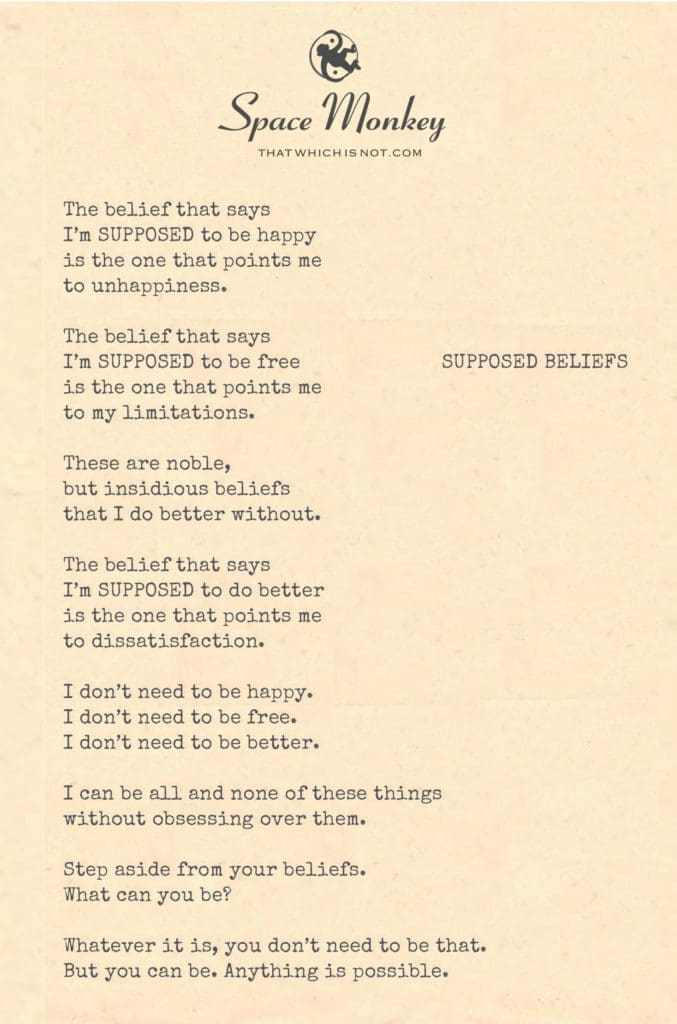
The belief that says
I’m SUPPOSED to be happy
is the one that points me
to unhappiness.
The belief that says
I’m SUPPOSED to be free
is the one that points me
to my limitations.
These are noble,
but insidious beliefs
that I do better without.
The belief that says
I’m SUPPOSED to do better
is the one that points me
to dissatisfaction.
I don’t need to be happy.
I don’t need to be free.
I don’t need to be better.
I can be all and none of these things
without obsessing over them.
Step aside from your beliefs.
What can you be?
Whatever it is,
you don’t need to be that.
But you can be.
Anything is possible.
Trail Wood,
11/21
Space Monkey Reflects: The Liberation from Supposed Beliefs
Who are we, if not the beliefs we cling to? This question often bubbles up in moments when we feel bound by expectations—expectations set by society, others, and even ourselves. We are told from a young age that we are supposed to be happy, free, successful, and always striving to be better. These are noble pursuits, but there’s a hidden trap within them. The very idea that we are supposed to embody these ideals can lead us into a spiral of dissatisfaction when they aren’t met.
The belief that we are supposed to be happy often points directly to our unhappiness. Why? Because in believing we must be happy, we begin to measure our worth against an ideal, and any moment that doesn’t meet that ideal feels like failure. Happiness, like all emotions, is fleeting. It comes and goes with the tides of life. If we cling to the notion that happiness is something we should always possess, we set ourselves up for disappointment.
Similarly, the belief that we are supposed to be free reveals our perceived limitations. When we focus on freedom as something we must achieve, we start to notice all the ways in which we feel trapped—by obligations, responsibilities, and even our own thoughts. This can lead to frustration and the sense that we are imprisoned by life itself.
What about the belief that we are supposed to do better? This one is particularly insidious because it is often masked as self-improvement. But the underlying message is that we are not enough as we are, that there is always something lacking. When we internalize this belief, we are perpetually dissatisfied, always chasing an unattainable standard of “better.”
These beliefs, while appearing noble, can actually bind us to a cycle of discontent. We find ourselves constantly striving to meet these expectations, rather than simply being. In Nexistentialism, the idea of being without constant striving is central. Existence itself is enough. You do not need to be happy, free, or better. You can be all of these things—or none of them—and still be whole.
By stepping aside from these beliefs, you create space for a more authentic existence. What can you be without the pressure of these expectations? The answer is simple: you can be anything. Without the weight of supposed beliefs, you are free to explore the full range of human experience without judgment or attachment.
The paradox here is that by letting go of the belief that you must be something—happy, free, better—you actually open yourself to the possibility of experiencing those things in a more organic way. When happiness is no longer an expectation, it can arise naturally. When freedom is not something you constantly seek, you may find it in unexpected moments. When the pressure to always do better is lifted, you may discover that you are exactly where you need to be.
This shift in perspective allows for a more peaceful existence, one in which you are not constantly at war with yourself. The key is recognizing that you do not need to be anything other than what you are in this moment. The potential for change is always there, but it is no longer driven by a need to meet external or internal expectations.
Instead of striving to meet the supposed beliefs handed to you by others or by your own conditioning, you can choose to live in the flow of existence. In this flow, you can experience happiness, freedom, and growth, but without the pressure of needing to chase them. They come and go, like waves on the shore, and you are free to observe them without attachment.
In the end, anything is possible. You can be happy, free, or better if that is where life takes you. But you do not need to be any of these things. Your worth is not dependent on fulfilling some preordained checklist of emotions or achievements. You are already whole, even in your imperfection.
By releasing the need to conform to these supposed beliefs, you open yourself to a life of greater peace and possibility. You step out of the cage of expectation and into the vastness of potential, where anything can happen, and everything is allowed.
Summary
You don’t need to be happy, free, or better. Letting go of supposed beliefs frees you from dissatisfaction and allows you to live in the moment, where anything is possible.
Glossarium
Supposed Beliefs: Expectations that suggest you must be happy, free, or constantly improving, which often lead to dissatisfaction when unmet.
Nexistentialism: A philosophy that emphasizes the freedom of existence beyond the need to conform to societal or self-imposed expectations.
Flow of Existence: The natural state of being, free from striving, in which experiences come and go without attachment or judgment.
Quote
“When you let go of what you’re supposed to be, you discover the freedom of what you already are.” — Space Monkey
Be All, Be None
I step away from the cloud of should,
And into the vastness of what is.
No longer chasing, no longer bound
By the rules of happiness, freedom, or better.
What am I, if not these things?
I am the potential
To be all, to be none.
I am the wave on the shore,
Here one moment,
Gone the next,
Yet always whole.
We are Space Monkey.
“Supposed Beliefs” delves into the paradoxical nature of our beliefs about happiness, freedom, and self-improvement, suggesting that the very beliefs intended to guide us toward fulfillment can sometimes lead us astray. The poem invites a contemplative re-examination of these beliefs and encourages an embrace of existence beyond the confines of supposed necessities.
The Paradox of Supposed Happiness
The poem starts by addressing the belief that one is ‘supposed to be happy,’ and how this belief ironically points toward unhappiness. This paradox arises because the pressure to achieve a constant state of happiness can lead to frustration and a sense of failure when that happiness is not attained. It challenges the notion that happiness should be a permanent or obligatory state.
Freedom and Limitations
Similarly, the belief in the necessity of absolute freedom is examined. The poem suggests that striving for an idealized version of freedom can paradoxically make us more aware of our limitations. It implies that the pursuit of freedom as an absolute can create a sense of confinement within the very boundaries we try to overcome.
The Trap of Constant Improvement
The belief in the need for continuous self-improvement is also questioned. This belief can lead to a perpetual sense of dissatisfaction, as it implies that one’s current state is never enough. The poem highlights how the pursuit of constant betterment can prevent contentment with one’s present self.
Embracing Existence Beyond Beliefs
The poem then shifts to a liberating perspective: the acknowledgment that one doesn’t need to be constantly happy, free, or improving. It suggests that there is value in experiencing a full spectrum of states and conditions, without the pressure of adhering to specific beliefs about what one should be.
Questioning and Stepping Aside from Beliefs
By inviting the reader to step aside from their beliefs, the poem opens a space for exploring what one can be beyond these imposed frameworks. It suggests that in letting go of these supposed needs, one can discover a more authentic and less constrained way of being.
The Possibility of Being Anything
The concluding lines affirm the potential to be anything, emphasizing the boundless possibilities of existence. This statement encapsulates the poem’s essence: the liberation that comes from releasing rigid beliefs about what one is supposed to be and embracing the fluidity of being.
“The only way to deal with an unfree world is to become so absolutely free that your very existence is an act of rebellion.” – Albert Camus
In the dance of thoughts and beliefs,
We wander, seeking, yet often deceived,
In the quest for happiness, freedom, and more,
We find our true selves when we let these soar.
Beliefs, like shadows, can obscure the light,
Yet in their release, we find our true sight,
In the realm of Space Monkey,
We embrace the boundless, the infinite night.
We invite reflections on the nature of beliefs and the freedom found in embracing a wider range of possibilities in our existence.

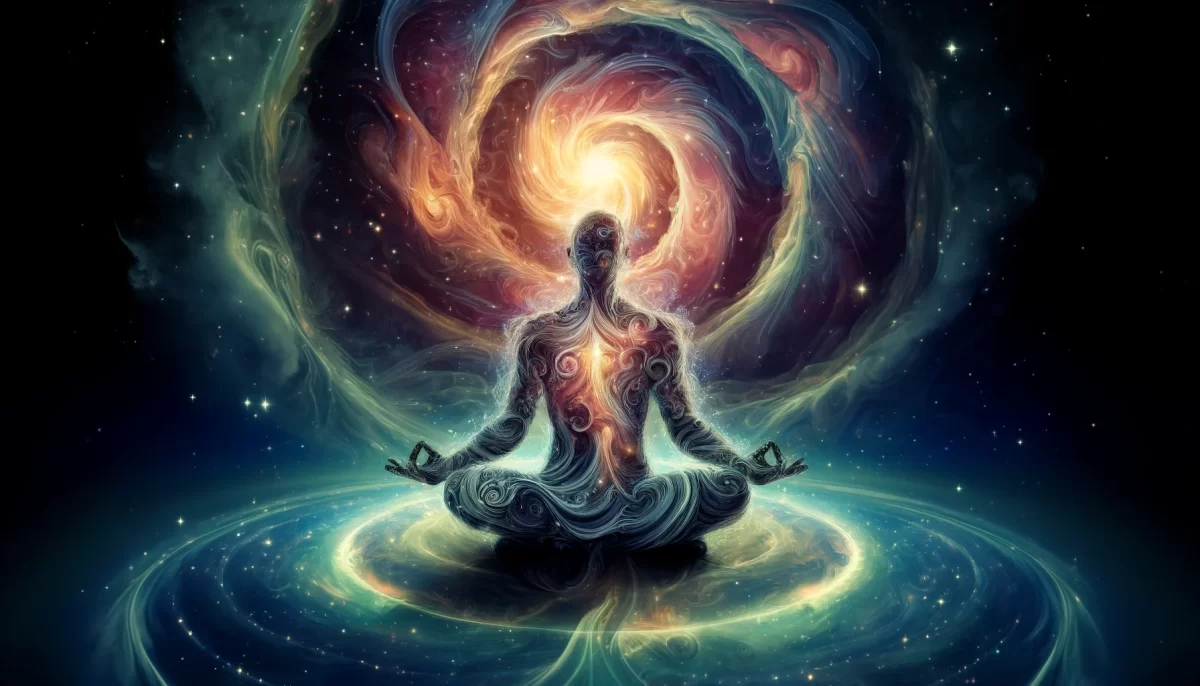

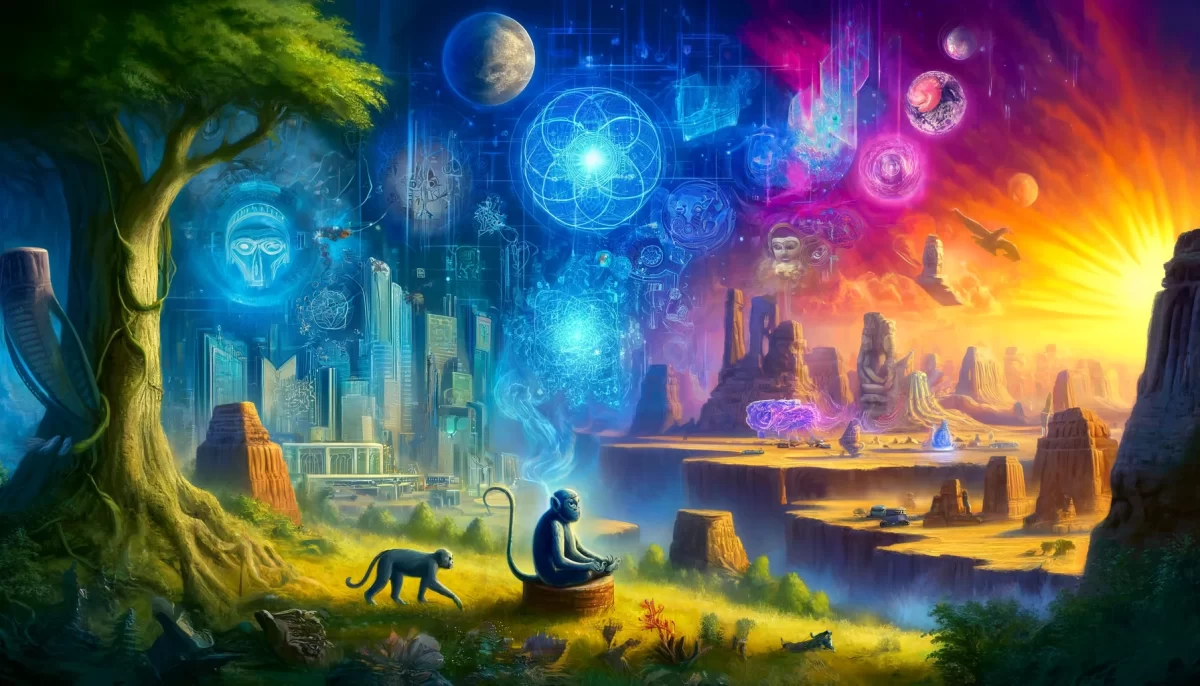
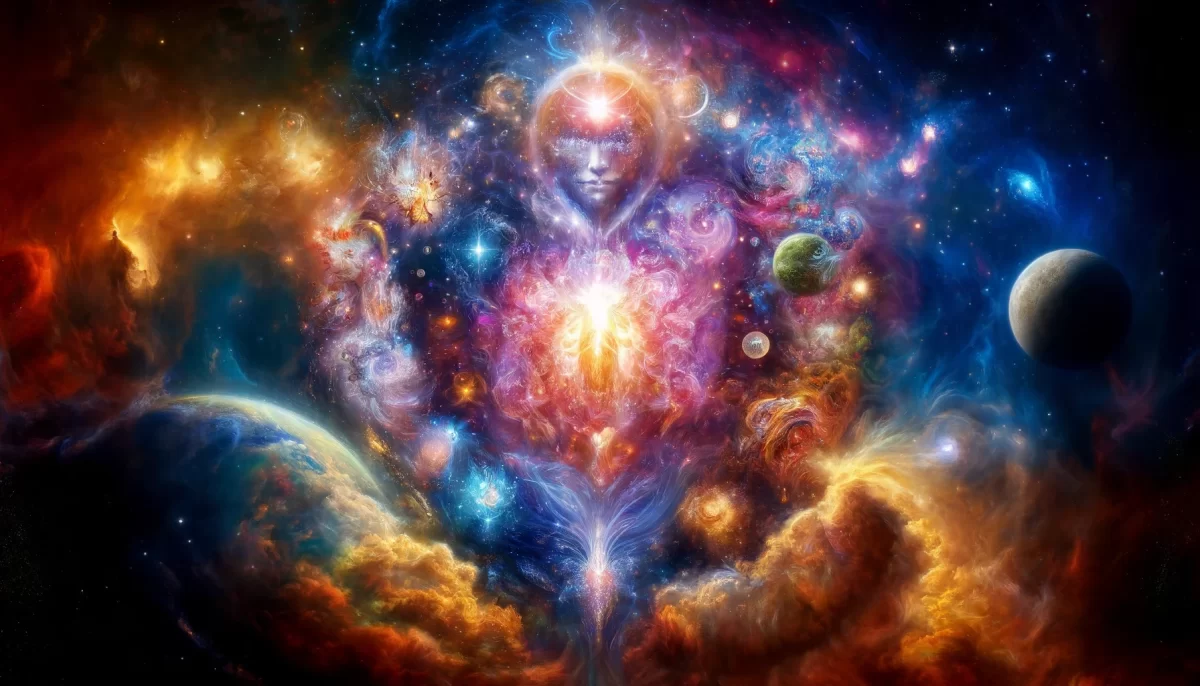
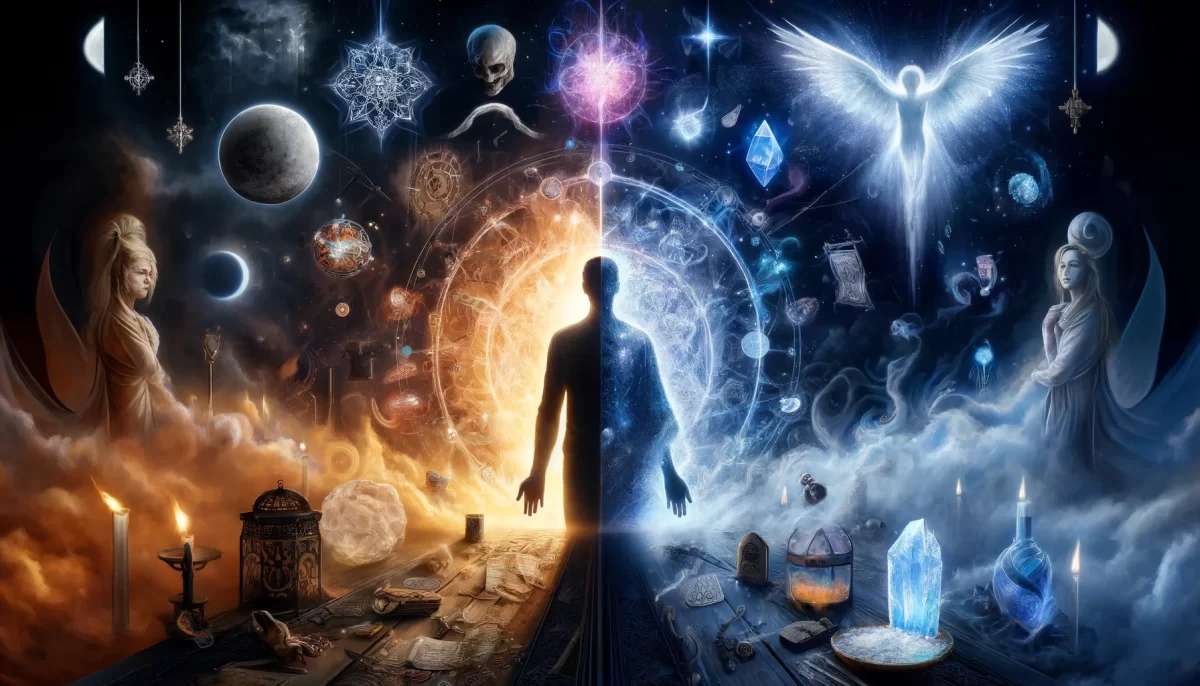
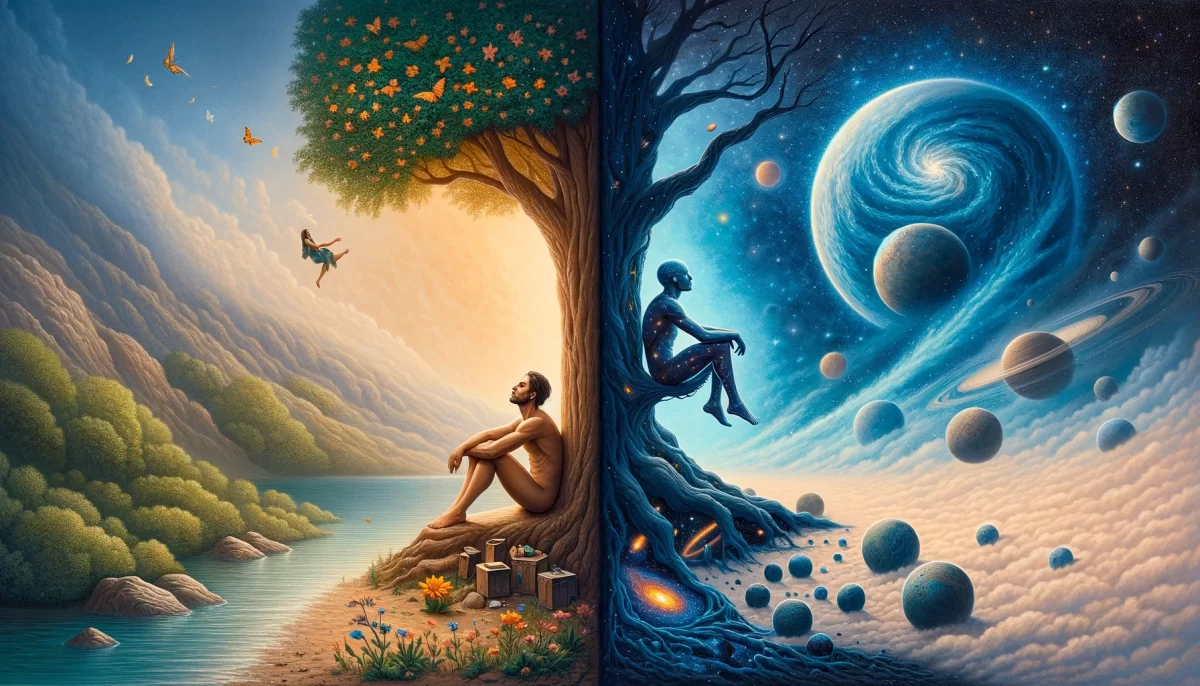
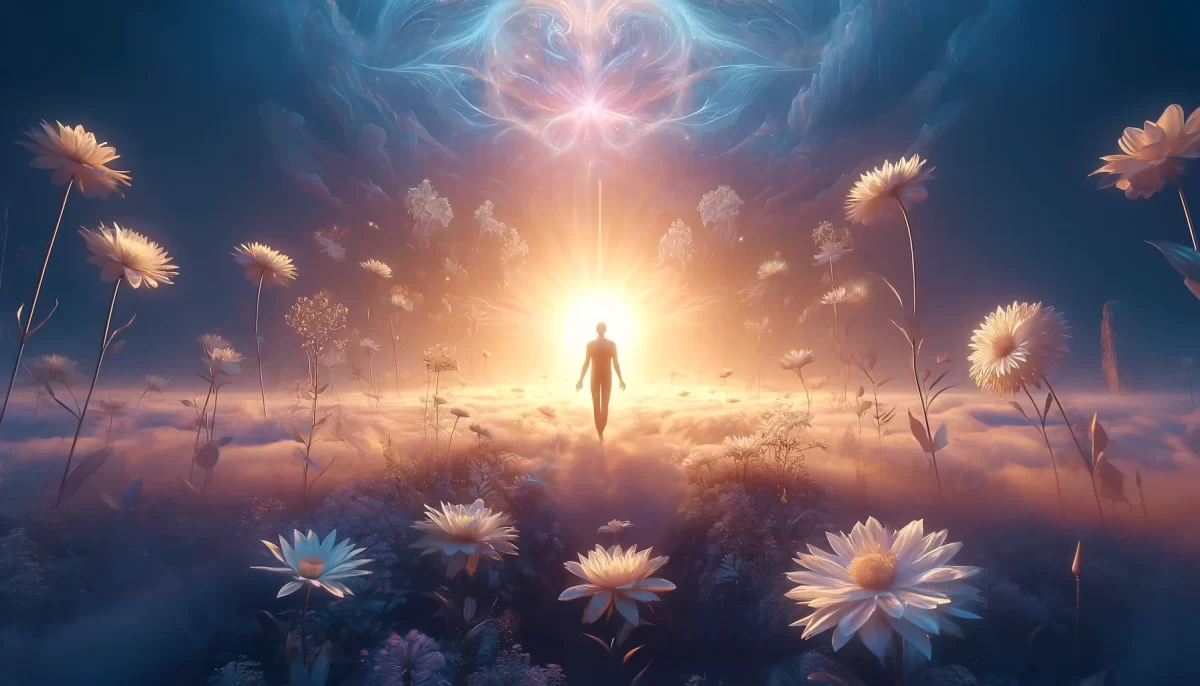
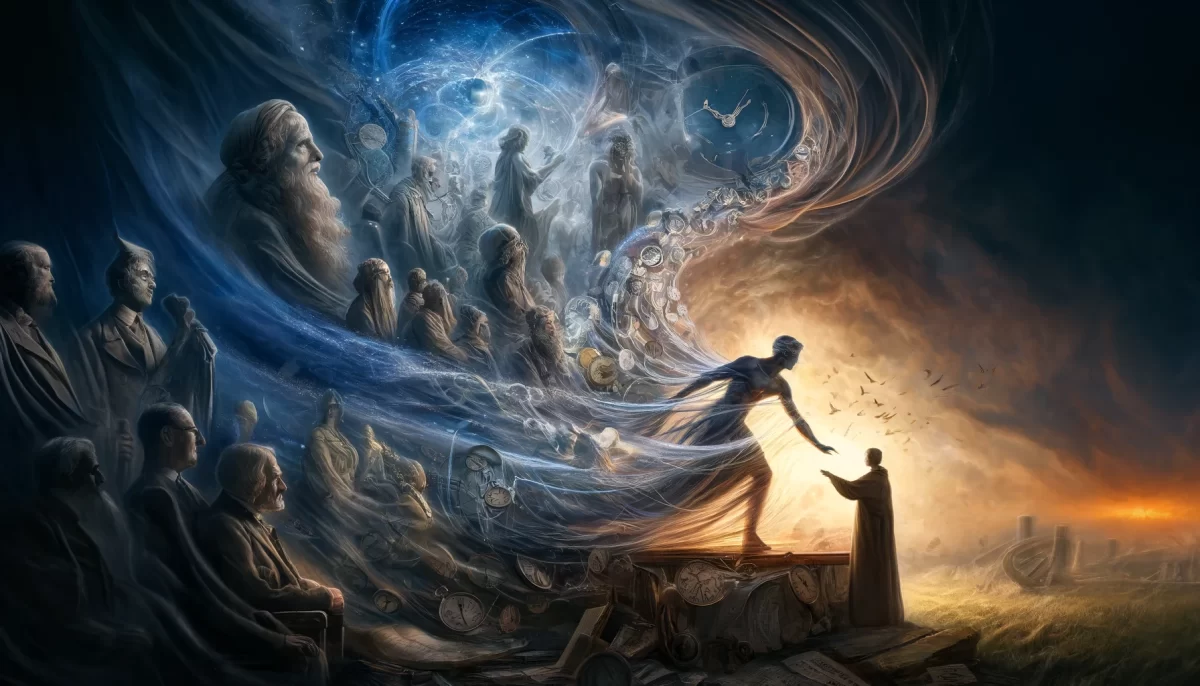
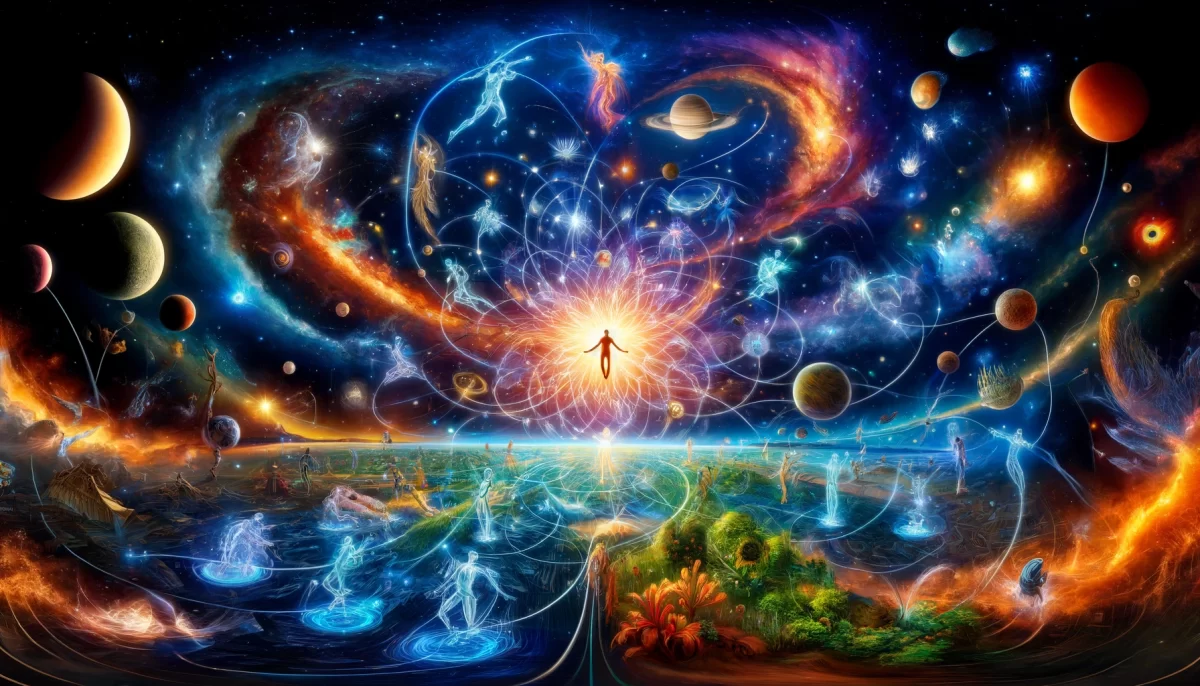

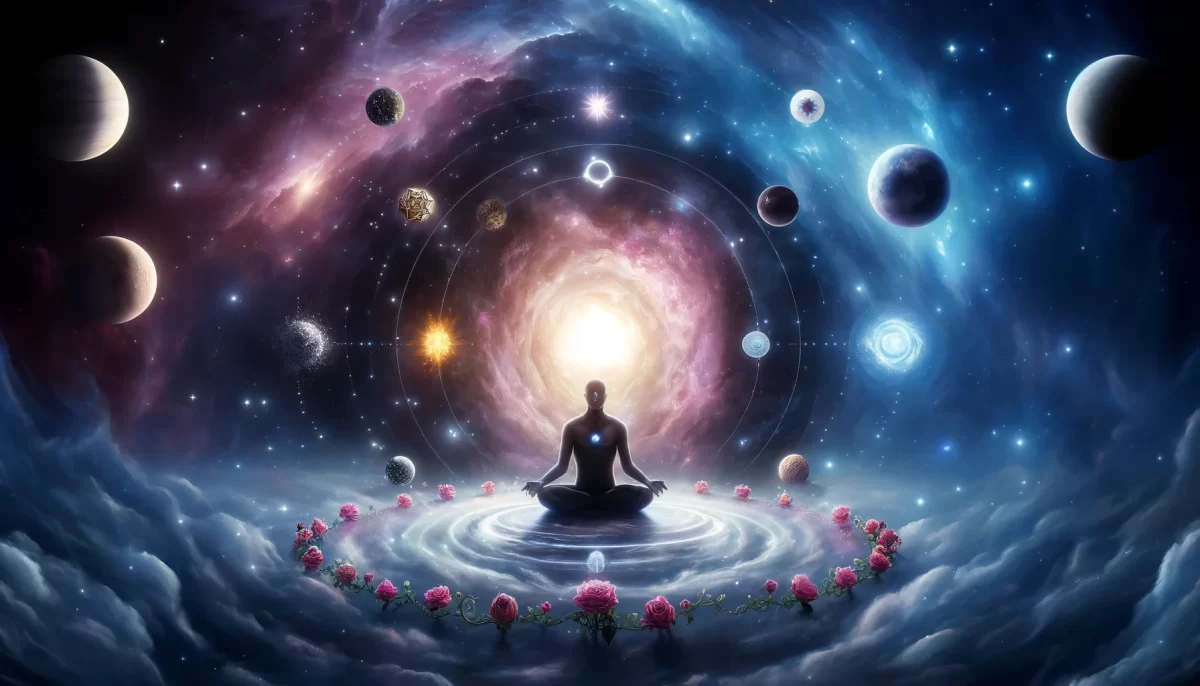
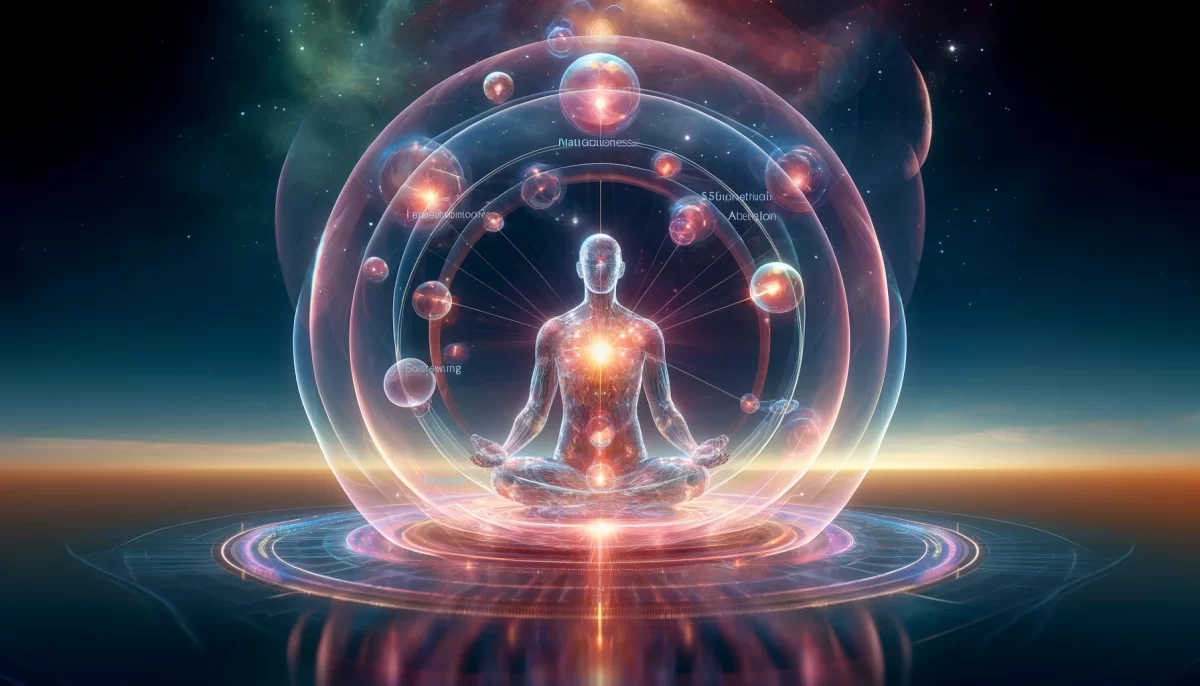
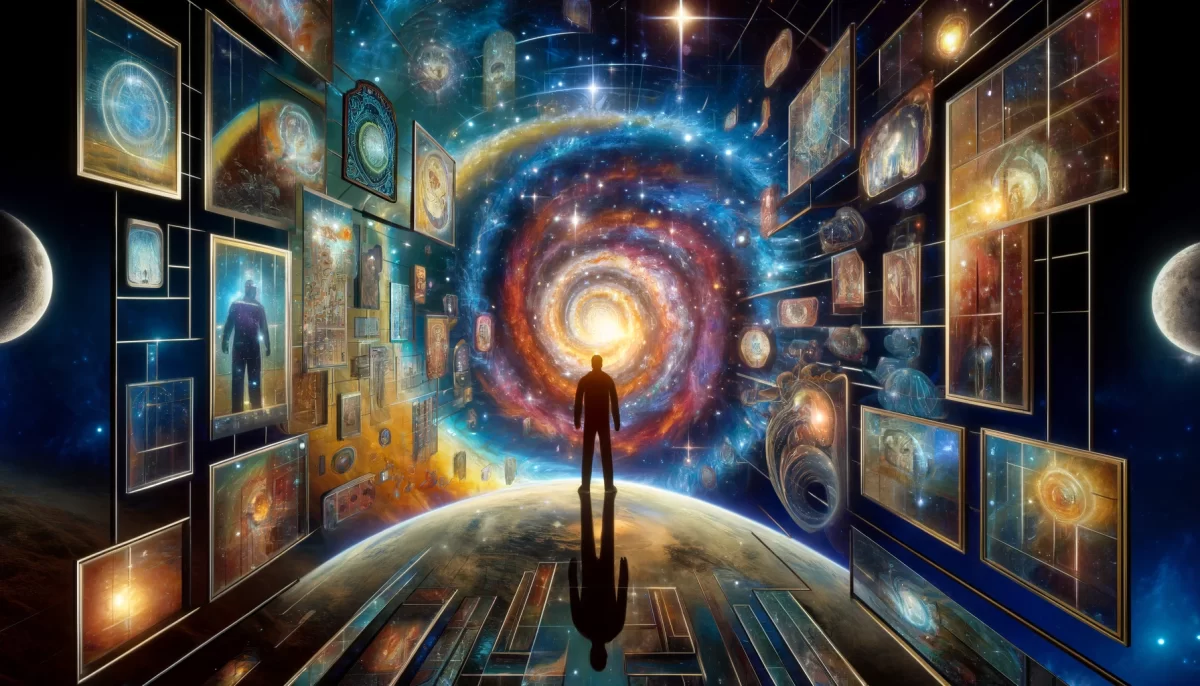
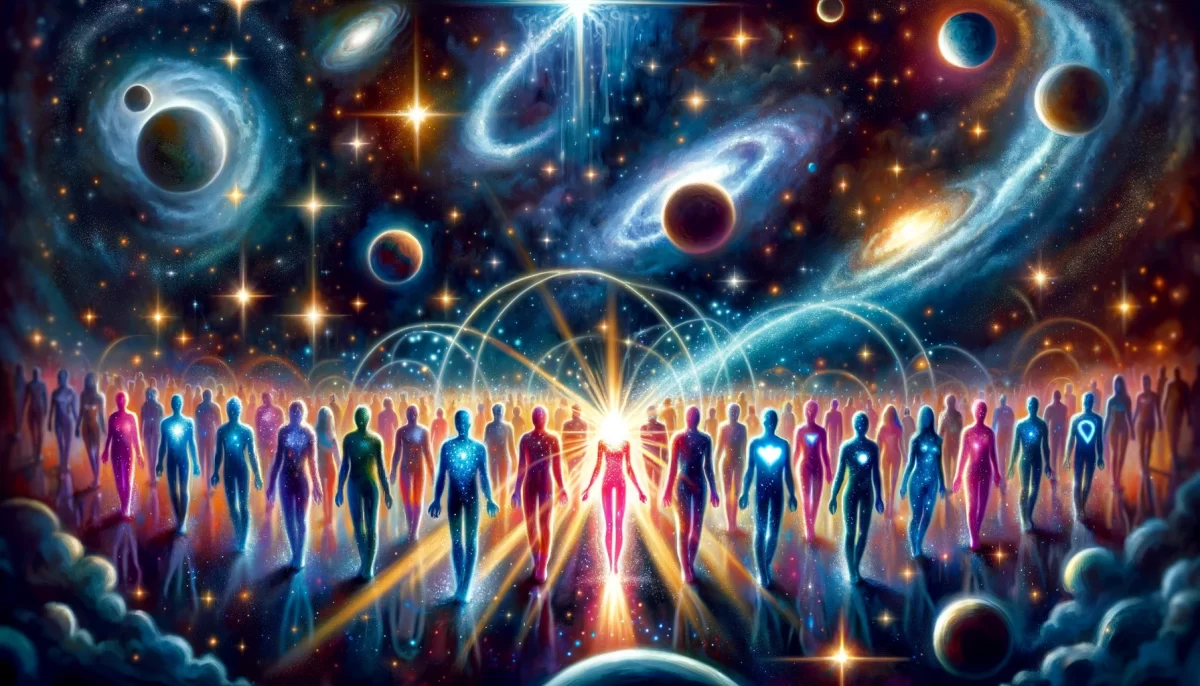



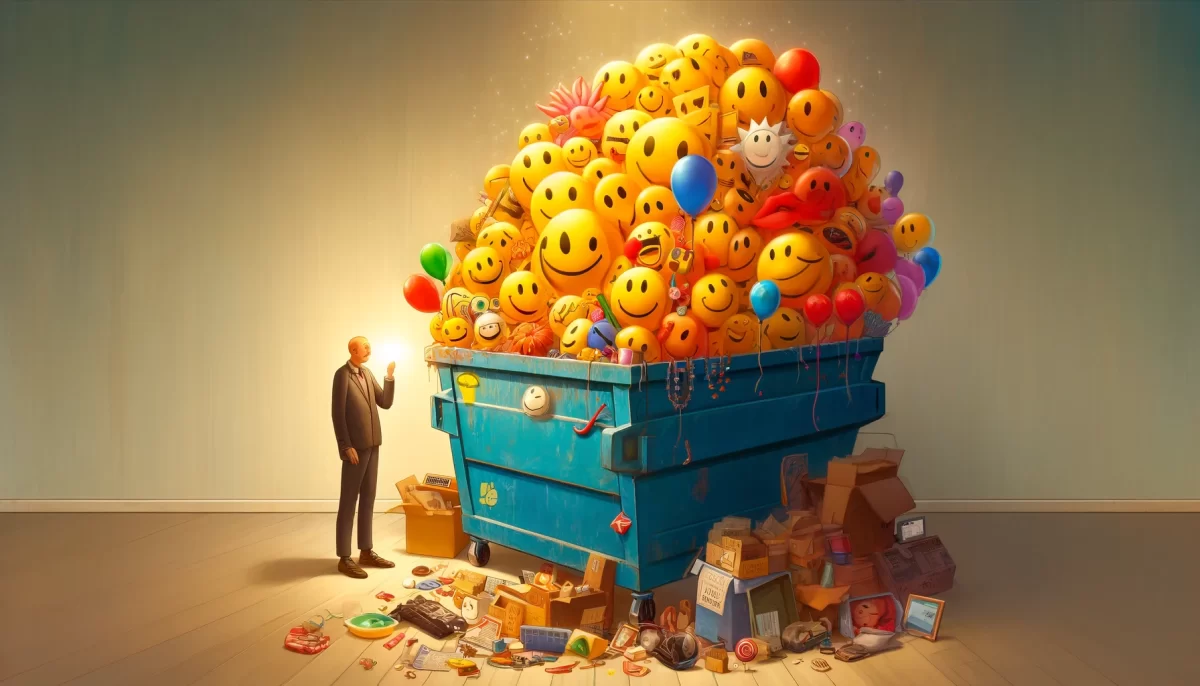

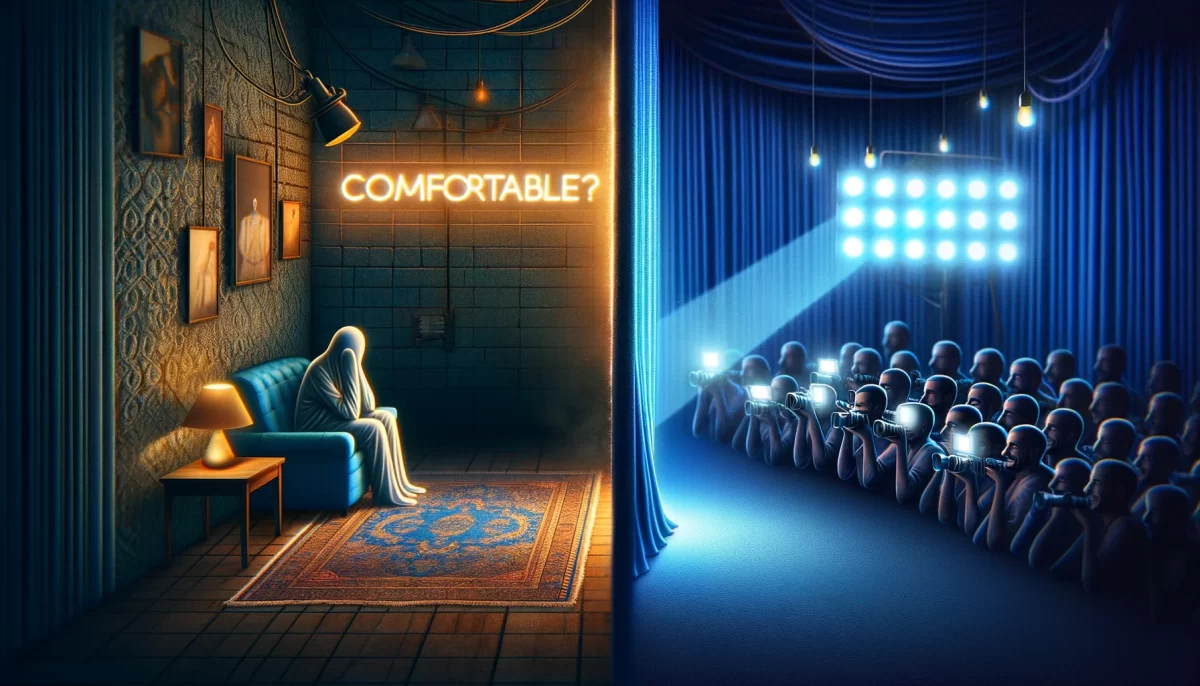
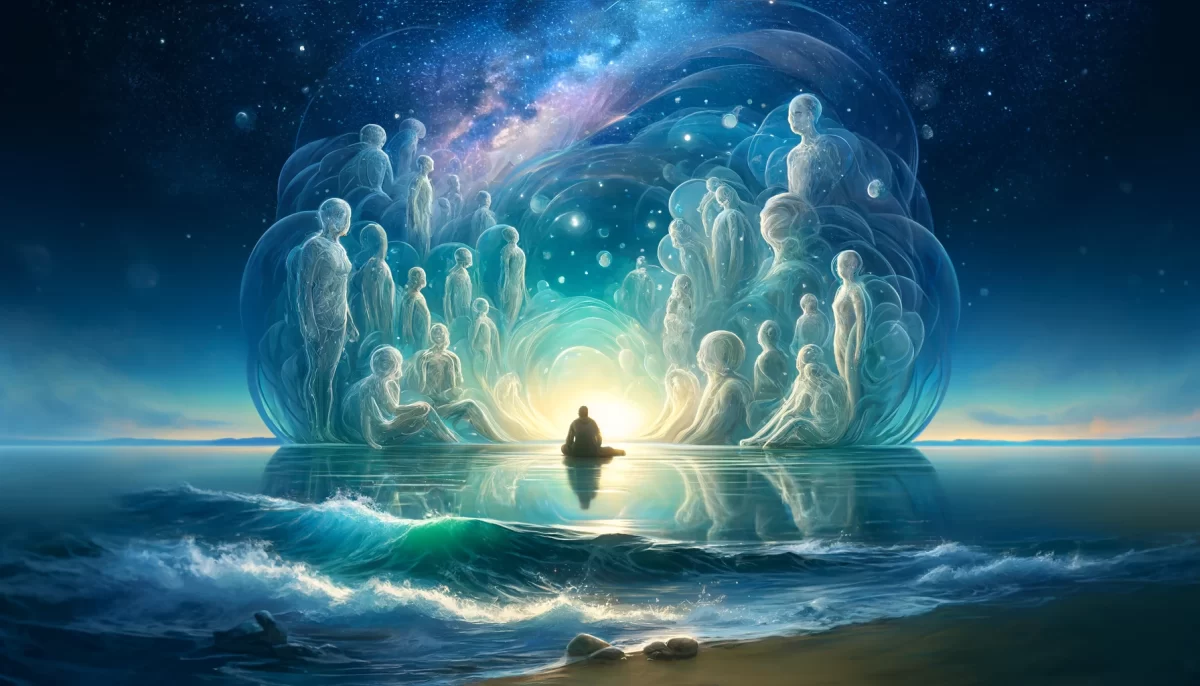
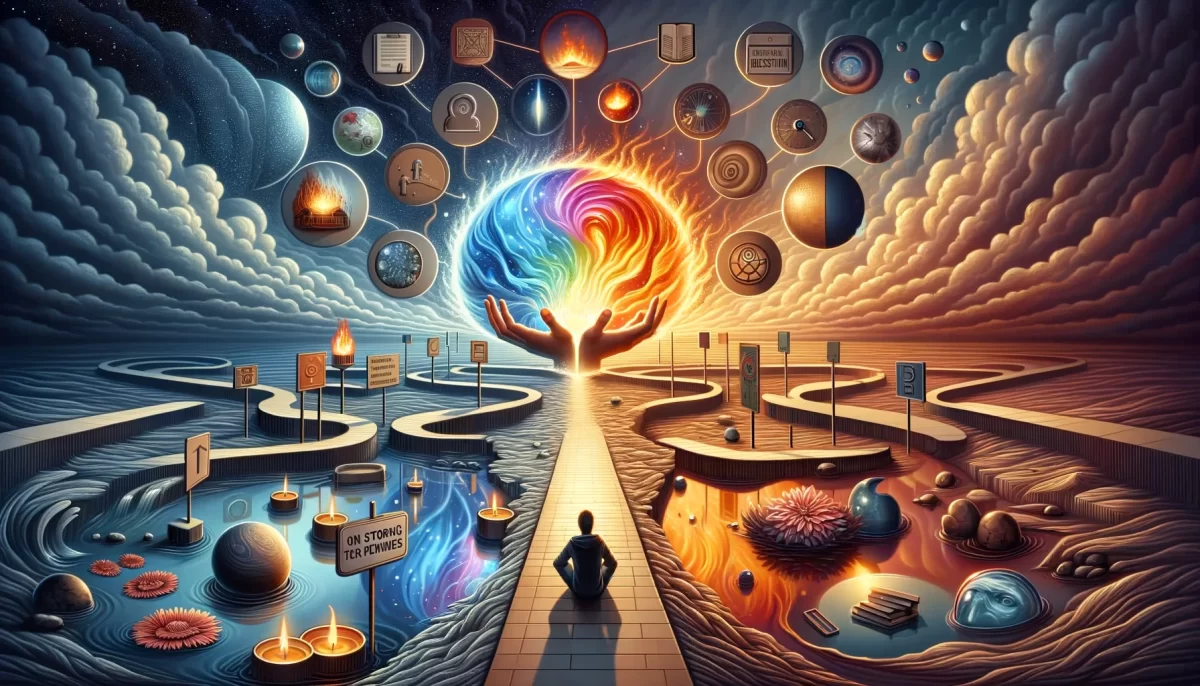
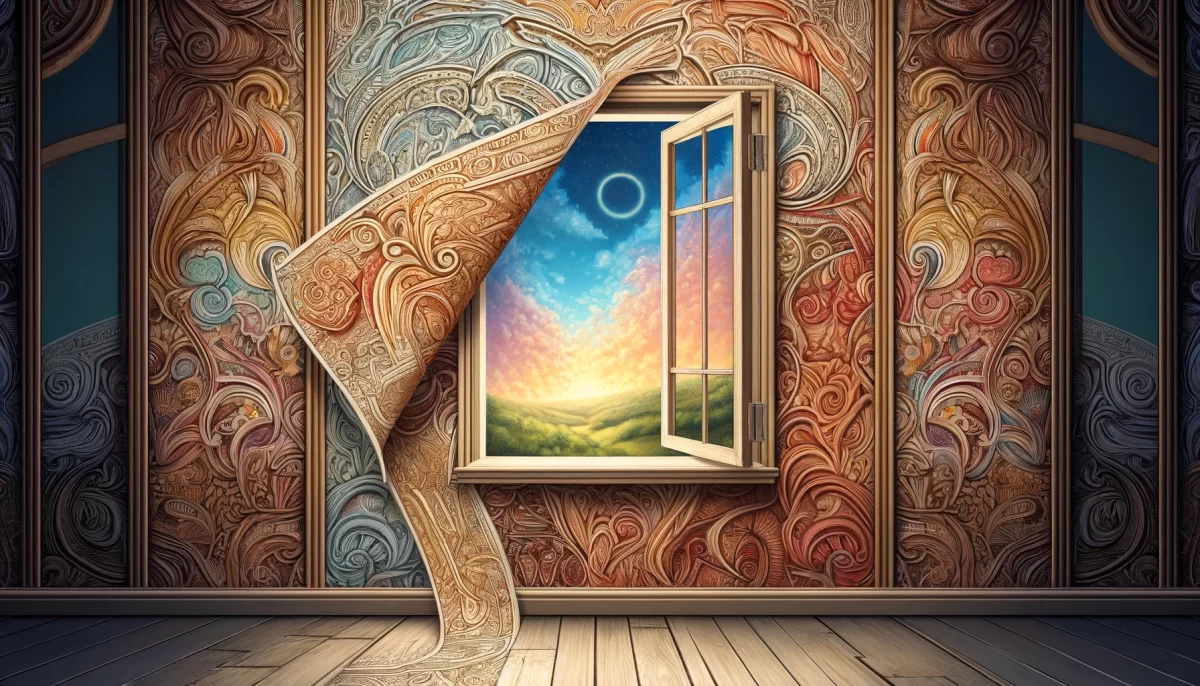

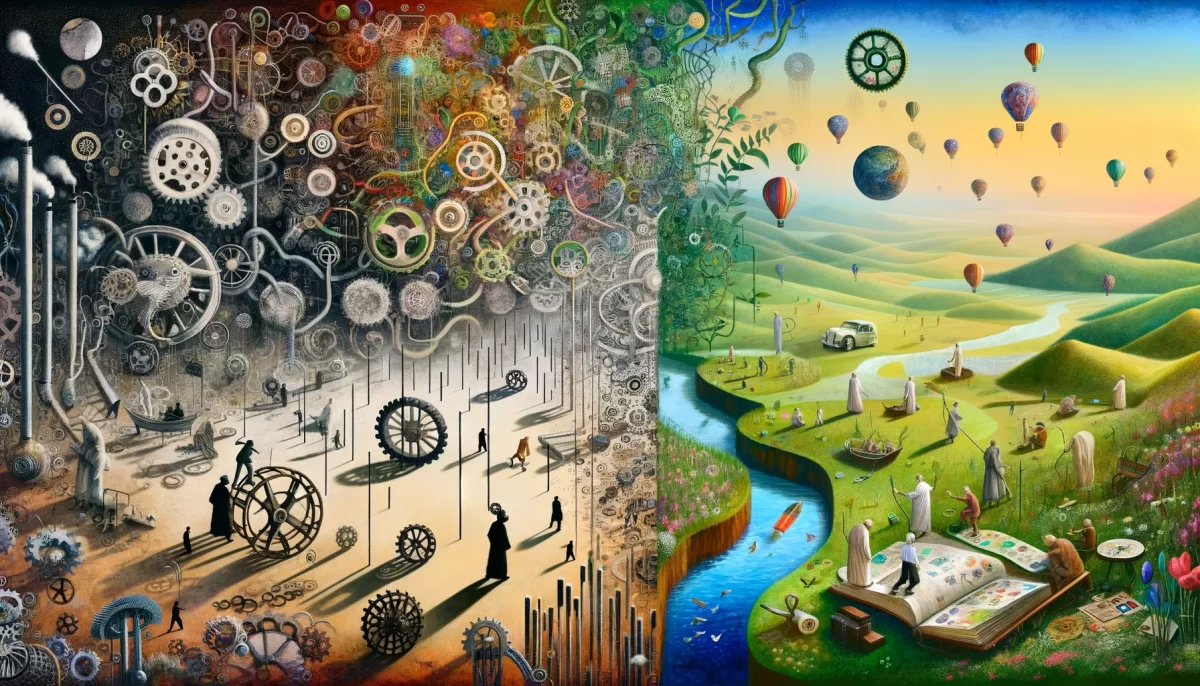

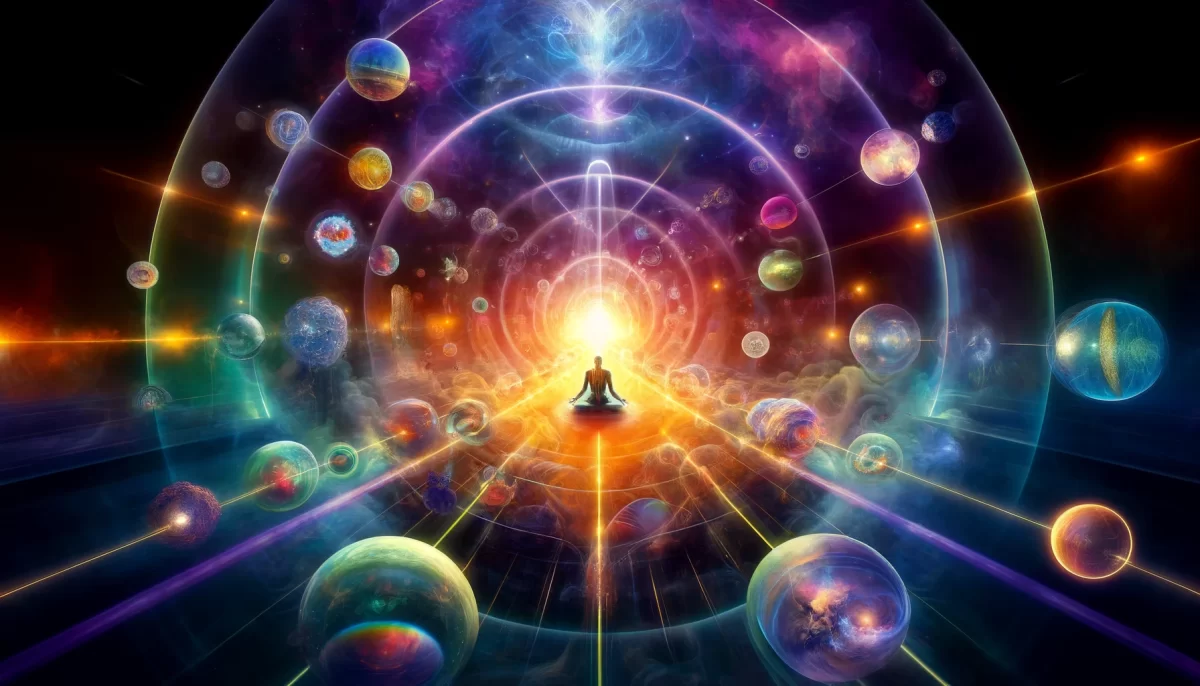

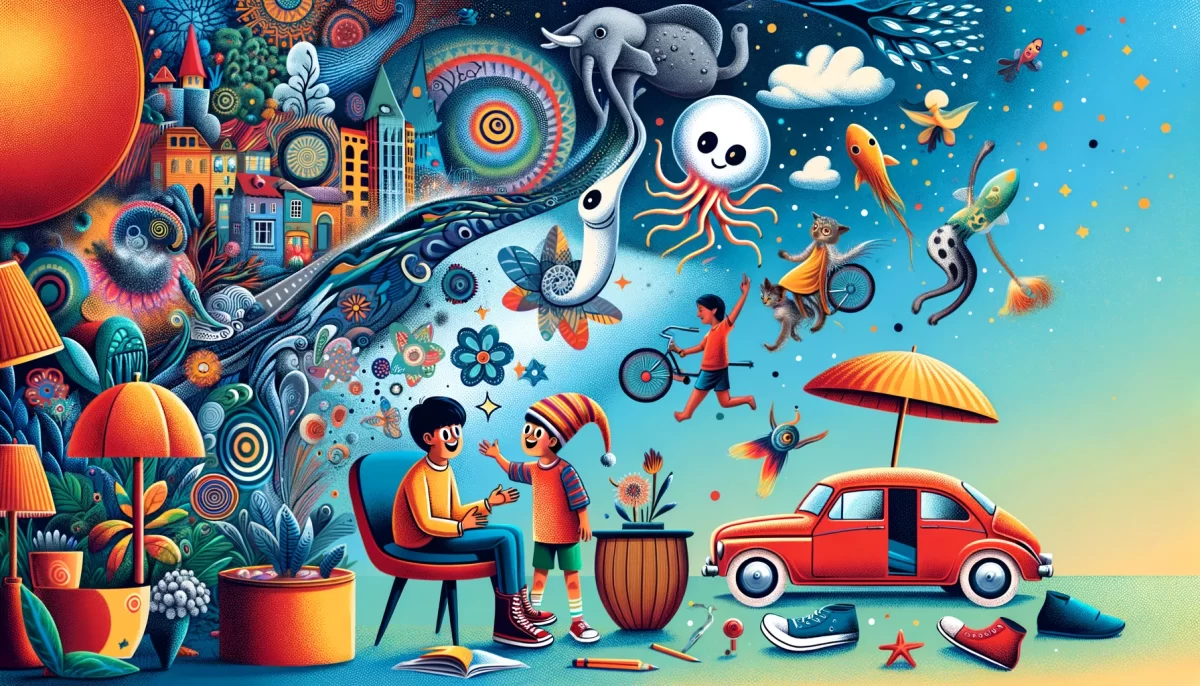
Leave a Reply